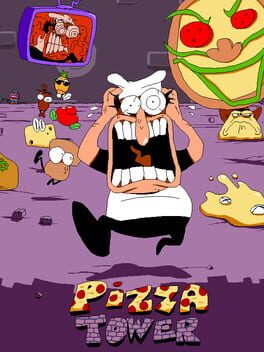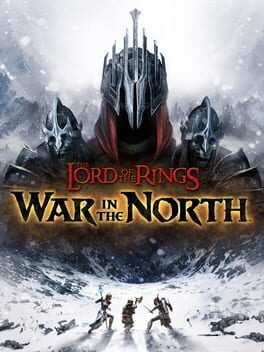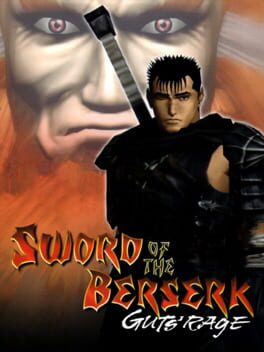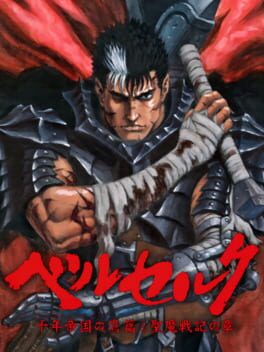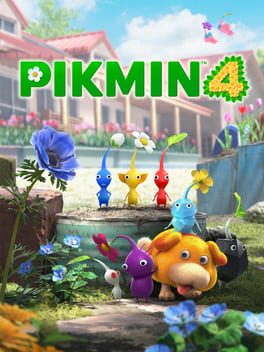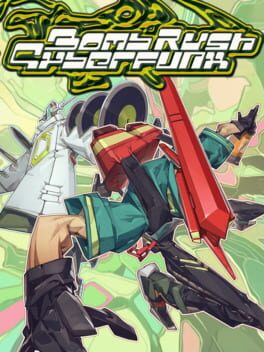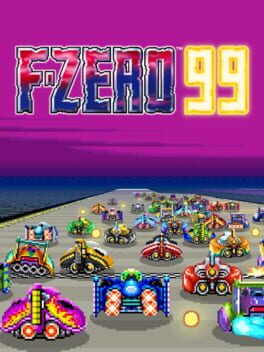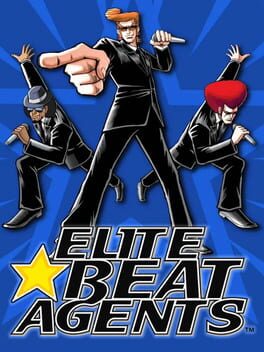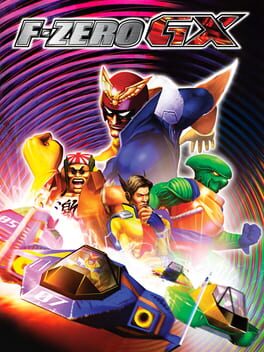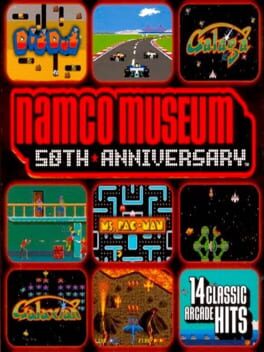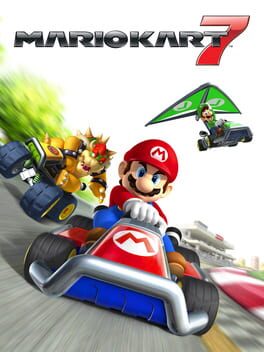LiamTriforce
2023
This was a fun co-op focused successor to Baldur's Gate: Dark Alliance (even being made by the same developers).
It has a virtually non-existent story with comically bland characters, and the plot all too conveniently lines up with the timing of Frodo's journey. The three main characters are kind of meant to be vessels for the three of you to inhabit, but even as vessels they fail. I feel little connection to any of them. The only time there was any real presentation of character traits and flaws was at the beginning of the final level, when Eradan helps Farin climb a mountain despite his stubbornness. More of this would have been great, and especially fun to discuss with friends while playing. Beleram the Eagle was by far my favourite character because he was always there in time.
The game was also buggy, but rarely in an intrusive way. Most of them were really entertaining, as bodies would collapse during combat or fly every which way, particles floating around when our weapons disappeared in cutscenes, hair clipping through armour, as well as cutscenes having visual bugs like the other eagles being frozen in the corner of the screen, or two of the same character appearing at once. There were also some hilarious pacing issues when cutscenes would trigger; combat would be cut short and then the characters would just be standing around talking. The most intrusive bug occurred when we'd choose to return to the hub mid-level, and then try to go back to where we were, and we'd be separated, forcing a level restart. The game is not polished overall; I've had a few instances where I was locked into a combo by multiple enemies. You don't have any invincibility frames in the game, to my knowledge. It's awkward.
With all of this said...the game, at its core, is really fun. I think the gameplay loop is solid, and though its level design and variety pales in comparison to Dark Alliance, it provided enough engagement and strategy to keep things fresh throughout, despite repetition seeping in toward the end. It was great fun to experience with friends; just an man, elf and dwarf on a quest together. Sharing laughter and commentary on the game itself. It was just as much fun to pick on as it was to actually play. The environmental design was also GORGEOUS, a beautiful realization of Middle-Earth in the interactive medium for sure.
I completely understand why the game flopped upon release; going up against Dark Souls the same year and Skyrim the same WEEK wasn't going to be easy. It also isn't the most polished or interesting game from the outside looking in. Hell, even on the inside, it doesn't have a lot to call its own. But it was fun, and I'd recommend it if you have a couple of friends that love Lord of the Rings and want something goofy and fun to play. (Actually the game was delisted, you can't get it anymore on digital storefronts lmao)
It has a virtually non-existent story with comically bland characters, and the plot all too conveniently lines up with the timing of Frodo's journey. The three main characters are kind of meant to be vessels for the three of you to inhabit, but even as vessels they fail. I feel little connection to any of them. The only time there was any real presentation of character traits and flaws was at the beginning of the final level, when Eradan helps Farin climb a mountain despite his stubbornness. More of this would have been great, and especially fun to discuss with friends while playing. Beleram the Eagle was by far my favourite character because he was always there in time.
The game was also buggy, but rarely in an intrusive way. Most of them were really entertaining, as bodies would collapse during combat or fly every which way, particles floating around when our weapons disappeared in cutscenes, hair clipping through armour, as well as cutscenes having visual bugs like the other eagles being frozen in the corner of the screen, or two of the same character appearing at once. There were also some hilarious pacing issues when cutscenes would trigger; combat would be cut short and then the characters would just be standing around talking. The most intrusive bug occurred when we'd choose to return to the hub mid-level, and then try to go back to where we were, and we'd be separated, forcing a level restart. The game is not polished overall; I've had a few instances where I was locked into a combo by multiple enemies. You don't have any invincibility frames in the game, to my knowledge. It's awkward.
With all of this said...the game, at its core, is really fun. I think the gameplay loop is solid, and though its level design and variety pales in comparison to Dark Alliance, it provided enough engagement and strategy to keep things fresh throughout, despite repetition seeping in toward the end. It was great fun to experience with friends; just an man, elf and dwarf on a quest together. Sharing laughter and commentary on the game itself. It was just as much fun to pick on as it was to actually play. The environmental design was also GORGEOUS, a beautiful realization of Middle-Earth in the interactive medium for sure.
I completely understand why the game flopped upon release; going up against Dark Souls the same year and Skyrim the same WEEK wasn't going to be easy. It also isn't the most polished or interesting game from the outside looking in. Hell, even on the inside, it doesn't have a lot to call its own. But it was fun, and I'd recommend it if you have a couple of friends that love Lord of the Rings and want something goofy and fun to play. (Actually the game was delisted, you can't get it anymore on digital storefronts lmao)
This game was fascinating. I wouldn't call it a "good" game, but there were ideas in place that were cool enough for me to want to keep playing. I don't regret the time I spent playing it, I guess?
From what I understand, this was the first Berserk-related thing to be officially localized - before the manga was published by Dark Horse Comics, and before the 1997 anime was dubbed into English. Considering it takes place after the Golden Age - after what happened to Casca - the setting must've seemed so bizarre to those unfamiliar with Berserk. And at the time, that would've been a LOT of people, save those that were reading scanlations on late 90's internet.
The game has an original story written by Miura himself, and it has some cool ideas, but its self-contained nature doesn't really give way to anything interesting in the long run. I recall one moment involving Casca that got to me, but I won't spoil it. The cutscenes (as well as the abundance of them) also really make it apparent just how important Miura's detailed, impactful artwork was to the story in pretty much every regard. The animations in this game are so stiff, gliding between keyframes with no tweening and no sense of stillness. It's awkward to watch characters move in this game. I also didn't HATE the English dub... but it wasn't great, and it's inconsistent in how they refer to Guts, sometimes calling him Gatsu for some reason. I guess they didn't feel like re-recording lines?
The core combat is pretty solid, even if it IS a little janky and lacks the depth of something like Devil May Cry in hindsight. I was definitely more forgiving, seeing as the game was released before all of the defining 3D action games were released. Combining light and heavy attacks feels pretty good, and Guts has a few moves that can juggle enemies and spice up combat. His Arm Cannon feels AMAZING to use. It completely decimates enemies you hit it with, but you have to use it sparingly. I'm not a huge fan of how the iconic Dragonslayer feels somehow both weightless and stiff to swing around, but I eventually got used to it. I also find it ambitious how the results of the quick-time events can lead to branching paths in levels; apparently, this was one of the first games of its kind to do something like that. Gotta give credit where credit is due.
My biggest issues with combat stem from the claustrophobic level design and the unbalanced difficulty. It seems obvious, but swinging a giant sword around in a corridor results in you smacking it against walls a LOT, unless you're in your special mode. I have no idea why they designed the game like this. The difficulty is a huge issue as well when it comes to boss fights; this game clearly lacked extensive testing.
The game is also paced very strangely, being a 2-3 hour game comprised of 50% cutscenes and 50% game, with save points only being after an episode ends, NOT when the game says "clear." It's a little unclear how saving works when you want to beat the game over multiple sessions, and could potentially result in you losing progress if you try to load your save. Saving itself just sucks in this game; you have to quit the game to save, and then load your game from the options menu when you come back, and I sure hope you know where you are ACTUALLY allowed to continue from, otherwise you're gonna be replaying a few combat sections.
It's hard for me to really enjoy this game as a whole. I appreciate elements of it for sure, and I had some fun tearing enemies apart for a while, but I don't consider it worth anyone's time other than EXTREMELY curious Berserk fans.
From what I understand, this was the first Berserk-related thing to be officially localized - before the manga was published by Dark Horse Comics, and before the 1997 anime was dubbed into English. Considering it takes place after the Golden Age - after what happened to Casca - the setting must've seemed so bizarre to those unfamiliar with Berserk. And at the time, that would've been a LOT of people, save those that were reading scanlations on late 90's internet.
The game has an original story written by Miura himself, and it has some cool ideas, but its self-contained nature doesn't really give way to anything interesting in the long run. I recall one moment involving Casca that got to me, but I won't spoil it. The cutscenes (as well as the abundance of them) also really make it apparent just how important Miura's detailed, impactful artwork was to the story in pretty much every regard. The animations in this game are so stiff, gliding between keyframes with no tweening and no sense of stillness. It's awkward to watch characters move in this game. I also didn't HATE the English dub... but it wasn't great, and it's inconsistent in how they refer to Guts, sometimes calling him Gatsu for some reason. I guess they didn't feel like re-recording lines?
The core combat is pretty solid, even if it IS a little janky and lacks the depth of something like Devil May Cry in hindsight. I was definitely more forgiving, seeing as the game was released before all of the defining 3D action games were released. Combining light and heavy attacks feels pretty good, and Guts has a few moves that can juggle enemies and spice up combat. His Arm Cannon feels AMAZING to use. It completely decimates enemies you hit it with, but you have to use it sparingly. I'm not a huge fan of how the iconic Dragonslayer feels somehow both weightless and stiff to swing around, but I eventually got used to it. I also find it ambitious how the results of the quick-time events can lead to branching paths in levels; apparently, this was one of the first games of its kind to do something like that. Gotta give credit where credit is due.
My biggest issues with combat stem from the claustrophobic level design and the unbalanced difficulty. It seems obvious, but swinging a giant sword around in a corridor results in you smacking it against walls a LOT, unless you're in your special mode. I have no idea why they designed the game like this. The difficulty is a huge issue as well when it comes to boss fights; this game clearly lacked extensive testing.
The game is also paced very strangely, being a 2-3 hour game comprised of 50% cutscenes and 50% game, with save points only being after an episode ends, NOT when the game says "clear." It's a little unclear how saving works when you want to beat the game over multiple sessions, and could potentially result in you losing progress if you try to load your save. Saving itself just sucks in this game; you have to quit the game to save, and then load your game from the options menu when you come back, and I sure hope you know where you are ACTUALLY allowed to continue from, otherwise you're gonna be replaying a few combat sections.
It's hard for me to really enjoy this game as a whole. I appreciate elements of it for sure, and I had some fun tearing enemies apart for a while, but I don't consider it worth anyone's time other than EXTREMELY curious Berserk fans.
2016
Lots of really repetitive objectives in this one and an unforgiving save system when faced with bosses with multiple phases, but the core gameplay and faithful adaptation of the manga's storyline make playing through it blast most of the time.
The core combat is absolutely phenomenal, translates the heftiness of that large slab of iron so beautifully, and I love trying to rack up combos and get experience with it. The combat flows so damn well, especially when you throw reversals, counters and context-sensitive actions into the boss fights. So much fun.
I don't know if I'll replay the game ever again because of how repetitive a lot of it feels, but I do get a huge kick out of the bosses, so I might at the very least revisit them. That core combat system was so beautifully crafted, man. By far the best Berserk video game (of which there are only three, but still).
The core combat is absolutely phenomenal, translates the heftiness of that large slab of iron so beautifully, and I love trying to rack up combos and get experience with it. The combat flows so damn well, especially when you throw reversals, counters and context-sensitive actions into the boss fights. So much fun.
I don't know if I'll replay the game ever again because of how repetitive a lot of it feels, but I do get a huge kick out of the bosses, so I might at the very least revisit them. That core combat system was so beautifully crafted, man. By far the best Berserk video game (of which there are only three, but still).
2023
Peakmin. Somehow manages to beautifully combine every awesome element from EVERY Pikmin game into one lovely package, and has a lot to offer for completionists, even after the secret ending. This is one of the best games of the year, and it's most likely going to remain my favourite game in the series. What a triumph, dude.
2023
The more I play this, the more I love it. Going for 100% completion has been a blast. Such fun core gameplay. Don't really like the combat and the story isn't amazing or anything, but DAMN is this game fun to play. A beautiful blend of what I love about Jet Set Radio and Tony Hawk's Pro Skater. Just can't get enuf.
Also highly recommend the multiplayer mod for score attack competitions with friends. Get those combos up high!
Also highly recommend the multiplayer mod for score attack competitions with friends. Get those combos up high!
2023
2020
Get ready, this is a long one.
Cyberpunk 2077 is a game that doesn't necessarily excel at any one thing, but it has a strong grasp on how to design a solid RPG. I enjoyed what was here, but I can't help but feel like something was missing. It's nothing revolutionary, but it is a fun game with a great story about what it means to be human.
I first want to address my history with this game. My interest was first piqued when I saw the gameplay demonstration in 2018, but like most people, I was completely entranced by the game at E3 2019. Not just because of wholesome 100 based Keanu, but because it seemed as though you had a great deal of freedom to truly become anyone in the game. You had freedom of choice in combat and missions, and the game promised a complex, branching storyline in which every decision you made had deep, far-reaching consequences on the story, and how people react to you.
This, of course, only ended up being sort of, but not really true in the final game. Most of us know the whole story about Cyberpunk's launch, so I won't regurgitate it here. What disappointed me most wasn't the technical performance or laundry list of bugs - it was the broken promises.
In the end, only the final mission had any real consequences. There was no branching storyline to speak of. This, coupled with the fact that the game was... unfinished when it released, led me to avoid the game at launch. It seemed like there was fun to be had, but I was disappointed in the fact that the thing I was most interested in was not there. Why promote Night City as a setting where you can carve a path for yourself if that path is predestined anyway?
When I played the game, though... my outlook changed. Certain missions did have multiple outcomes, like the Delemain questline, for example, and even if there was no effect on the world itself, I did enjoy seeing the different rewards (and lack thereof) for my actions. Also, you could at the very least set up like six different endings through a few questlines, and I very much appreciated that. In fact, the ending I chose happened to align perfectly with how my Nomad playthrough began, and my own philosophies when approaching the story the game was trying to tell. It was the perfect ending, honestly.
I particularly connected with the story, and I came to accept the fact that a branching storyline would have severely affected the impact that this narrative would have. The game had to be this way, and without spoiling anything, the choices you have in the end are perfectly complimentary to the game's thesis about being human, and how that line blurs through the relationship between man and machine, and corporations and citizens. If anything, the game was ahead of its time when it was being developed, foreshadowing a power imbalance that would only grow more dissonant in the 2020s.
Night City also explores several nuances that I took a liking to. I particularly vibed with the concept of Braindances, which go beyond virtual reality and allow the player to feel and live out every sensation as if they were really the person the BD was recorded from. What this leads to, naturally, is an underground porn and snuff ring where BDs of real murders are being distributed to sellers twisted enough to want to experience that shit, which in turn ties into a emotional questline with great characters that I won't spoil here.
What is truly at the heart of Cyberpunk's themes of life and humanity are the relationships you form throughout the game. Against the backdrop of that aforementioned power imbalance, and the scattered lives of those around you, everyone is just trying to survive. I found myself connecting to several characters' backgrounds and circumstances; even Johnny Silverhand managed to win me over by the end of the game, despite how much of a piece of shit he'd been. And that's really what it's all about - beneath everything, we are all human. The conversation I had with Takemura on the rooftop of a construction site made me realize... oh wow, maybe there is some humanity to everyone after all... even corpos. And while we don't know if there is a way to tear down that unjust system without consequences, it is worth trying. Fighting. Surviving. Living.
I'm not going to argue that the delivery of this game's themes is perfect, but they resonated with me, and the ending I chose felt like the best way to close out my story, and how I perceived the themes of this game. Rather than being afraid to lose people closest to me, I decided to let them help me and take risks because they love me, and take off for greener pastures - no matter what may come in the future.
Cyberpunk's role-playing elements do not revolutionize the industry. They're quite a few steps above Fallout 4, but they don't even come close to New Vegas. What the game does excel at is the world in place, its story and characters, and its gameplay. The builds you can create offer the most freedom to experiment and allow you to basically craft any kind of playstyle you like. I turned myself into a time-freezing, shotgun and katana-wielding killing machine, and I was a force to be reckoned with, for sure, but you can also run a stealth-centric build where you hack and distract enemies, a blunt-force trauma kind of warrior, a nuisance that can passively heal - basically, this game's skills are your sandbox, and they perfectly accompany both the open-ended mission structure, and my desire to see these characters' questlines through to the end. Honestly, even the jank was entertaining and endearing. As long as the bugs aren't disruptive, I am thoroughly entertained by bugs in Bethesda games, and Cyberpunk's bugs were rarely disruptive for me, so I had a few good laughs throughout my playthrough.
All in all, Cyberpunk 2077 came together really well in the end, and I had a good time. It does feel like there's something missing, and I'll always wonder what might have been, but only after Starfield released did I realize just how Cyberpunk managed to get its role-playing elements, setting, story and gameplay all right. Bethesda seems to have transformed into a pale, listless shadow of its former self, and I have a feeling Cyberpunk's legacy is going to shake out differently, being perceived as an all-time great RPG that people eventually warmed up to. Preem shit, choom.
Cyberpunk 2077 is a game that doesn't necessarily excel at any one thing, but it has a strong grasp on how to design a solid RPG. I enjoyed what was here, but I can't help but feel like something was missing. It's nothing revolutionary, but it is a fun game with a great story about what it means to be human.
I first want to address my history with this game. My interest was first piqued when I saw the gameplay demonstration in 2018, but like most people, I was completely entranced by the game at E3 2019. Not just because of wholesome 100 based Keanu, but because it seemed as though you had a great deal of freedom to truly become anyone in the game. You had freedom of choice in combat and missions, and the game promised a complex, branching storyline in which every decision you made had deep, far-reaching consequences on the story, and how people react to you.
This, of course, only ended up being sort of, but not really true in the final game. Most of us know the whole story about Cyberpunk's launch, so I won't regurgitate it here. What disappointed me most wasn't the technical performance or laundry list of bugs - it was the broken promises.
In the end, only the final mission had any real consequences. There was no branching storyline to speak of. This, coupled with the fact that the game was... unfinished when it released, led me to avoid the game at launch. It seemed like there was fun to be had, but I was disappointed in the fact that the thing I was most interested in was not there. Why promote Night City as a setting where you can carve a path for yourself if that path is predestined anyway?
When I played the game, though... my outlook changed. Certain missions did have multiple outcomes, like the Delemain questline, for example, and even if there was no effect on the world itself, I did enjoy seeing the different rewards (and lack thereof) for my actions. Also, you could at the very least set up like six different endings through a few questlines, and I very much appreciated that. In fact, the ending I chose happened to align perfectly with how my Nomad playthrough began, and my own philosophies when approaching the story the game was trying to tell. It was the perfect ending, honestly.
I particularly connected with the story, and I came to accept the fact that a branching storyline would have severely affected the impact that this narrative would have. The game had to be this way, and without spoiling anything, the choices you have in the end are perfectly complimentary to the game's thesis about being human, and how that line blurs through the relationship between man and machine, and corporations and citizens. If anything, the game was ahead of its time when it was being developed, foreshadowing a power imbalance that would only grow more dissonant in the 2020s.
Night City also explores several nuances that I took a liking to. I particularly vibed with the concept of Braindances, which go beyond virtual reality and allow the player to feel and live out every sensation as if they were really the person the BD was recorded from. What this leads to, naturally, is an underground porn and snuff ring where BDs of real murders are being distributed to sellers twisted enough to want to experience that shit, which in turn ties into a emotional questline with great characters that I won't spoil here.
What is truly at the heart of Cyberpunk's themes of life and humanity are the relationships you form throughout the game. Against the backdrop of that aforementioned power imbalance, and the scattered lives of those around you, everyone is just trying to survive. I found myself connecting to several characters' backgrounds and circumstances; even Johnny Silverhand managed to win me over by the end of the game, despite how much of a piece of shit he'd been. And that's really what it's all about - beneath everything, we are all human. The conversation I had with Takemura on the rooftop of a construction site made me realize... oh wow, maybe there is some humanity to everyone after all... even corpos. And while we don't know if there is a way to tear down that unjust system without consequences, it is worth trying. Fighting. Surviving. Living.
I'm not going to argue that the delivery of this game's themes is perfect, but they resonated with me, and the ending I chose felt like the best way to close out my story, and how I perceived the themes of this game. Rather than being afraid to lose people closest to me, I decided to let them help me and take risks because they love me, and take off for greener pastures - no matter what may come in the future.
Cyberpunk's role-playing elements do not revolutionize the industry. They're quite a few steps above Fallout 4, but they don't even come close to New Vegas. What the game does excel at is the world in place, its story and characters, and its gameplay. The builds you can create offer the most freedom to experiment and allow you to basically craft any kind of playstyle you like. I turned myself into a time-freezing, shotgun and katana-wielding killing machine, and I was a force to be reckoned with, for sure, but you can also run a stealth-centric build where you hack and distract enemies, a blunt-force trauma kind of warrior, a nuisance that can passively heal - basically, this game's skills are your sandbox, and they perfectly accompany both the open-ended mission structure, and my desire to see these characters' questlines through to the end. Honestly, even the jank was entertaining and endearing. As long as the bugs aren't disruptive, I am thoroughly entertained by bugs in Bethesda games, and Cyberpunk's bugs were rarely disruptive for me, so I had a few good laughs throughout my playthrough.
All in all, Cyberpunk 2077 came together really well in the end, and I had a good time. It does feel like there's something missing, and I'll always wonder what might have been, but only after Starfield released did I realize just how Cyberpunk managed to get its role-playing elements, setting, story and gameplay all right. Bethesda seems to have transformed into a pale, listless shadow of its former self, and I have a feeling Cyberpunk's legacy is going to shake out differently, being perceived as an all-time great RPG that people eventually warmed up to. Preem shit, choom.
2010
I can't believe I waited this long to play this game. The world Obsidian created has so much depth, giving the player so much agency to explore consequences, but the game operates outside of the realms of explicit good and evil. I never felt truly, fully satisfied with the morality of all of my actions, and I don't see that as a bad thing - quite the opposite, really. Every single decision you make really does have far-reaching positive and negative effects on the world, and more than that - you have so much freedom to approach quests however you like. I have so many stories about my first playthrough that I know are going to stick with me.
I feel like Bethesda will never be able to outdo what Obsidian achieved with this game, and it's a shame it was rushed. Even with the depth of its world, it could have been so much more, which is hard to believe in its own right. The combat might not be anything too amazing, but the exceptional amount of player freedom, dialogue options, and layered complexities to its world make it one of the best RPGs I've ever played. I'll likely be playing this game again someday, and I'll cherish my first playthrough forever.
I feel like Bethesda will never be able to outdo what Obsidian achieved with this game, and it's a shame it was rushed. Even with the depth of its world, it could have been so much more, which is hard to believe in its own right. The combat might not be anything too amazing, but the exceptional amount of player freedom, dialogue options, and layered complexities to its world make it one of the best RPGs I've ever played. I'll likely be playing this game again someday, and I'll cherish my first playthrough forever.
2006
2003
2011
2010
Alan Wake is weird, unconventional, and unique. Its meta narrative deliberately makes it unclear who is in control of whose story, and it paints a crystal clear picture of what writer's block feels like, better than any piece of fiction I've ever consumed. I had a blast playing it.
That said, the gameplay could've used some more work. It was solid fun for the most part, and reinforced the game's psychological thriller atmosphere and design, but man did it get repetitive by the end. The game also clearly doesn't account for when multiple enemies are attacking you because you just get true-comboed into death.
All in all, though, there are few games that feel closely related with literature like Alan Wake, and for that reason I think it's something that everyone should play, ponder, and discuss.
That said, the gameplay could've used some more work. It was solid fun for the most part, and reinforced the game's psychological thriller atmosphere and design, but man did it get repetitive by the end. The game also clearly doesn't account for when multiple enemies are attacking you because you just get true-comboed into death.
All in all, though, there are few games that feel closely related with literature like Alan Wake, and for that reason I think it's something that everyone should play, ponder, and discuss.
